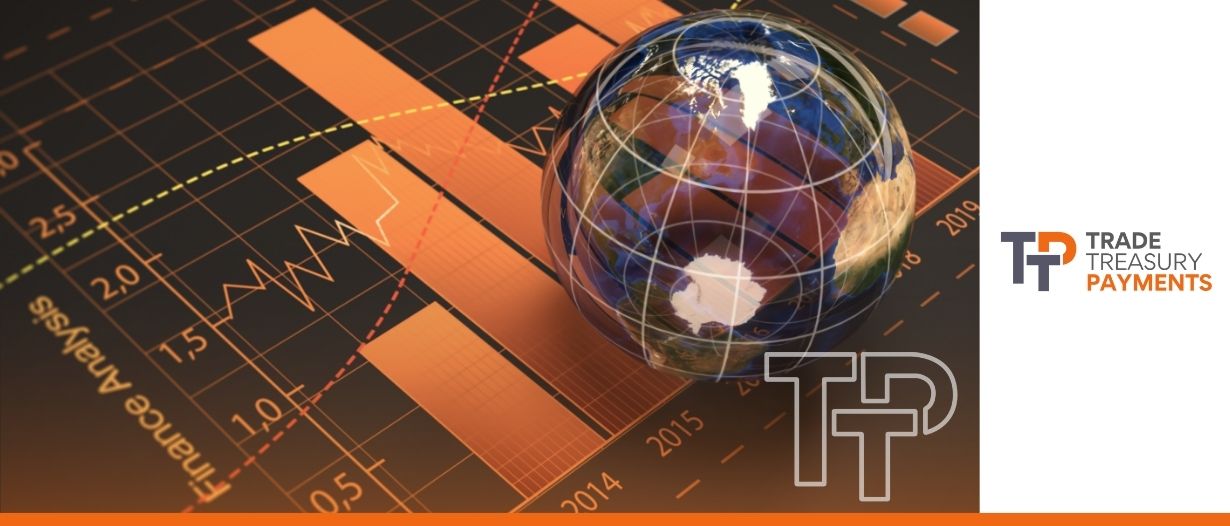The Prax Group story: From too big to fail to collapsing like a house of cards
Devanshee Dave
Jul 05, 2025
 Joy Macknight
Joy Macknight
Gabrielle Reid
 Rebecca Harding
Apr 22, 2025
Rebecca Harding
Apr 22, 2025

The framework that once held global trade together no longer fits the reality it’s supposed to support. The assumptions that underpinned multilateralism have thinned. Policy shifts once considered unthinkable now move markets. Institutions built to stabilise are struggling to stay relevant.
The questions now facing trade and finance professionals are more structural than technical. What’s replaced multilateralism if the institutions are no longer credible? What’s the plan when access to markets depends more on political alignment than comparative advantage?
This is the day after. And there’s no going back.
In this emergency broadcast, Trade Treasury Payments’ (TTP) Payments and Transaction Banking Editor Joy MacKnight spoke with Dr. Rebecca Harding, CEO of the Center for Economic Security, and Gabrielle Reid, Head of Advisory at Pangea Risk to better understand how the recent protectionist tariffs and America first trade policies coming out of the US President Trump’s administration will impact global trade.
The Bretton Woods system emerged from the ashes of the Second World War and governed the world order for nearly eight decades.
Harding said, “What we’re seeing here is actually the removal of the United States strategically from the international rules-based order. What that means is essentially it’s moved over to a mercantilist model where deficits are everything. So I export more, you export less, I win, you lose. And this has been on the cards since 2017-2018. It’s not new.”
Despite the campaign trail promises and inauguration day rhetoric, most trade experts and commentators believed that the President’s promises of new tariffs were just a negotiating tactic. Markets have been volatile since learning that they are not, and political leaders around the world have been jostling for a seat at the negotiating table across from the USA.
Harding added, “It’s definitely the United States against the rest of the world and recalibrating the way we have to think about international trade.”
The point now seems to be to reset expectations and force the rest of the world to adjust.
Trade, once a pillar of international consensus, has been pulled into the orbit of power politics and is now being used to extract not only economic concessions but political obedience.
Reid said, “We’re not only seeing an effort by the Trump administration to protect domestic industries… It’s also using trade policy as a lever to secure non-trade-related concessions.”
With Trump in office, tariffs are as much about border control, defence spending, or diplomatic disputes as they are about balancing deficits.
Defence budgets. Border policy. Strategic influence over shipping lanes and island territories. These are foreign policy aims but it seems that trade has become the preferred mechanism to pursue them.
States find themselves drawn into this coercive framework, pressured into decisions far beyond the trade docket with a counterpart they once viewed as an ally but now no longer know if they can trust.
In this new configuration, trade is calibrated to coerce. And states that don’t follow the script are learning how costly that deviation can be. South Africa knows this. With diplomatic ties leaning toward BRICS and foreign policy decisions unpopular in Washington, it now faces the prospect of sweeping export tariffs.
Reid said, “The earlier threats… of a 100% tariff on members from the BRICS bloc… was in response to reports that the bloc was exploring replacing the US dollar.”
Denmark and Panama are two other examples of nations facing tariff-based threats from the US, largely in an attempt to exert control over Greenland and the Panama Canal, respectively, two areas that the Trump Administration have deemed to be strategically important.
Countries long reliant on Western capital are forging new relationships with the Gulf, China, India, and mid-tier powers with strategic ambitions. In Africa, investment from the Gulf states has surged, while intra-African trade is expanding under the African Continental Free Trade Area (AfCFTA).
Harding said, “There’s going to be a separation of trade into two geoeconomic zones… one China-centric, another US-centric.”
The sphere of the emerging coalition of partners forming around China is more interested in flexibility than ideological alignment and that country’s infrastructure and investment capabilities are providing a viable alternative to the western-centric system. China’s CIPS system now enables international payments without depending on dollar infrastructure.
The rift between the world’s two economic giants does create space for other players, like India, Turkey, and the Gulf states to step in and Africa has become a testing ground for these new alignments. More than $100 billion in Gulf investment has flowed in over the last decade, over $50 billion of which was committed in a single year.
Reid said, ““The Gulf states are becoming a legitimate trade partner alternative for African governments in a potential pivot away from the US. We’re seeing investment in ports, logistics, agribusiness… reinforcing infrastructure and strengthening new trade corridors.”
These deals come with fewer conditions and faster timelines and for many governments, they offer a workable substitute to legacy development finance.
For emerging markets, the stakes are immense. The fragility of debt denominated in dollars, coupled with rising interest rates, has created acute fiscal pressure.
Reid said, “There’s an overreliance on external financing mechanisms that could ultimately accelerate economic vulnerability. … Even small increases in interest rates or small further appreciation of the dollar could really trigger painful fiscal adjustments.”
To add to the challenge, dollar-denominated debt becomes harder to service when US rates rise and currency fluctuations make repayments unpredictable.
The dispersal of global economic power means emerging and frontier markets can renegotiate. By recognising the leverage that comes with optionality and establishing regional value chains, these states will be better able to trade on their own terms.
If the stats are any indication, many on the continent now prefer to turn east rather than west, China-Africa trade crossed $280 billion in 2020. The equivalent US-Africa figure was less than a quarter of that.
Harding said, “There aren’t strings attached to Chinese debt that are likely to be attached to American or European debt.”
Non-energy trade between Africa and the UAE has also tripled over the past decade, now exceeding $60 billion. For many emerging markets, these flows are very much intentional and help to provide a hedge against the growing unpredictability of the old order.
The need for strategic clarity has grown as financial institutions increasingly find themselves actors in a geopolitical theatre. Their exposure decisions, their risk frameworks, even the currencies they use carry significance beyond the balance sheet. Banks are being drawn into national priorities, asked to implement sanctions, navigate tariff regimes, and assess counterparties in a world where political affiliations matter.
Harding said, “Somebody said to me, we need to get to the position where we can start using trade finance banks as tanks. That is a very worrying development. But the banks and the Treasury departments have to realise that how they allocate their resources and the choices that they make are actually geostrategic now.”
This demands a different type of thinking. What was once considered downstream (i.e., sanctions regimes, capital flow restrictions, secondary tariffs) now sits near the top of the risk register and firms that fail to account for that may find themselves exposed in ways no hedging model can fix. A payment routed through one corridor may trigger scrutiny. A deal signed in one region may invite retaliation in another.
For institutions navigating this reality, agility is insufficient without foresight. Where are alliances forming? Which currencies are gaining traction? How are trade corridors shifting beneath the headlines? These questions sit at the core of corporate strategy.
The system that follows Bretton Woods won’t be decided in a single meeting. Those who understand that early will be better positioned to shape the outcomes that follow.

Devanshee Dave
Jul 05, 2025
Trade Treasury Payments is the trading name of Trade & Transaction Finance Media Services Ltd (company number: 16228111), incorporated in England and Wales, at 34-35 Clarges St, London W1J 7EJ. TTP is registered as a Data Controller under the ICO: ZB882947. VAT Number: 485 4500 78.
© 2025 Trade Treasury Payments. All Rights Reserved.